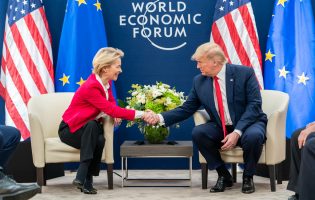Felix Berenskötter
Senior Lecturer in International Relations, SOAS, University of London
Felix Berenskötter was a Visiting Fellow at AICGS in June 2019. He is Senior Lecturer (Associate Professor) in International Relations at SOAS, University of London. He specializes in international theory; concepts of friendship, identity, power, security, peace, space, and time; European security; and transatlantic relations. Following undergraduate studies in Hamburg, Felix received a Masters Degree from Rutgers University, where he was a Fulbright Scholar, and a PhD from the London School of Economics and Political Science (LSE). He authored a number of journal articles and, most recently, edited “Concepts in World Politics” (Sage, 2016). From 2017-2019 he received funding from the Leverhulme Trust for a project on friendship and estrangement in international relations.
He was a 2017-2018 participant in AICGS’ project “A German-American Dialogue of the Next Generation: Global Responsibility, Joint Engagement,” sponsored by the Transatlantik-Programm der Bundesrepublik Deutschland aus Mitteln des European Recovery Program (ERP) des Bundesministeriums für Wirtschaft und Energie (BMWi).








